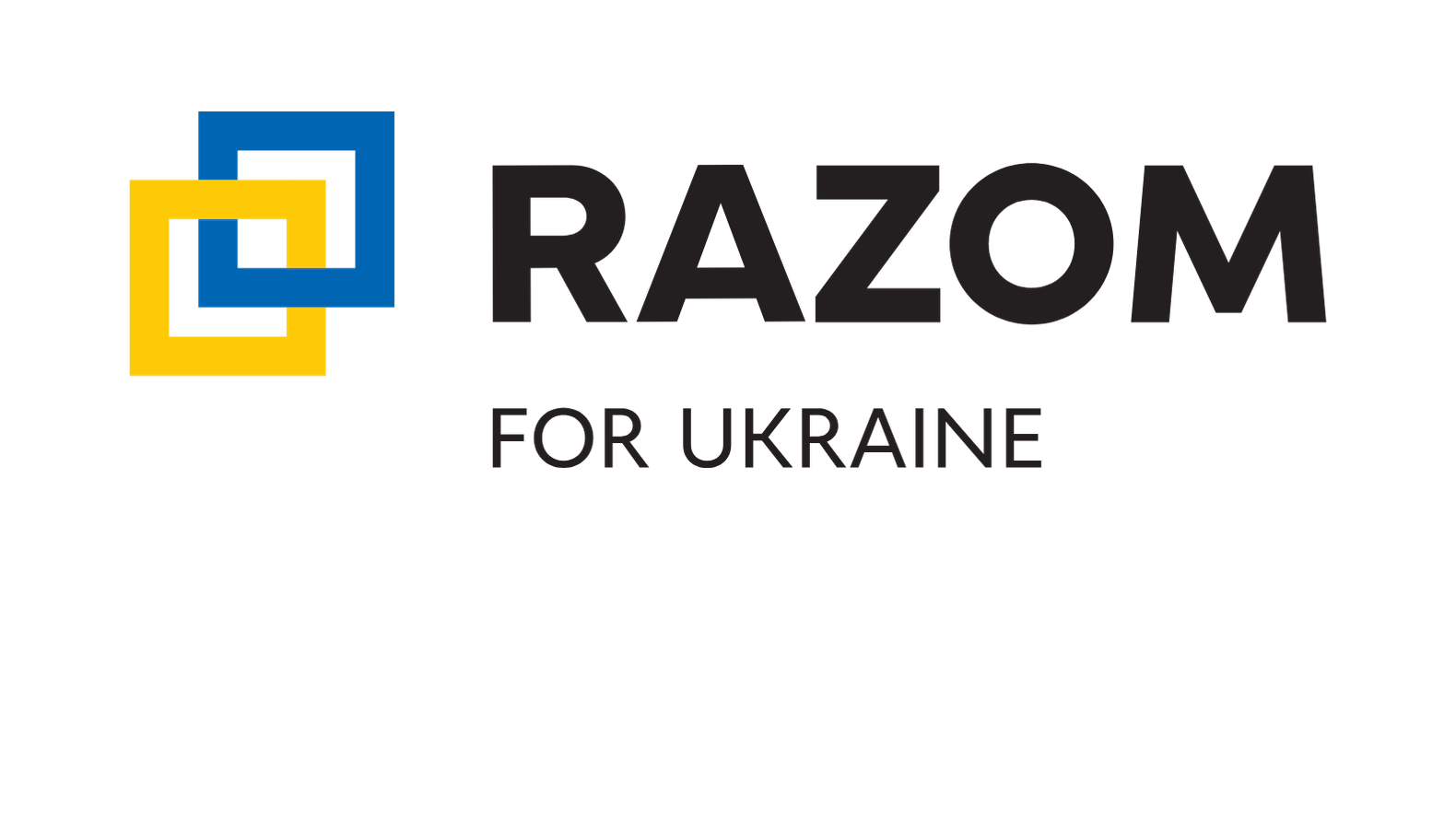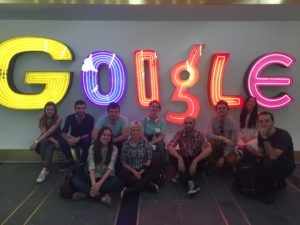Capitan, artificial intelligence for grocery shopping. Meadow, smart event planning. Cardiolyse.me, an individual health management platform. Blynk, an Internet of Things app builder. MMOne Project, a VR gaming chair that turns on three axes. Luciding, lucid dreaming guaranteed. All are companies creating new possibilities. All of them come from Ukraine.
Why This Program: #big #smart #now
Razom IT is an economic development initiative launched by Razom six months ago. We host monthly talks in New York City that bring together people who are interested in the development of tech and Ukraine. Thanks to a decade of healthy growth in outsourcing to Ukraine–and bolstered by a legacy of engineering smarts in the country of 45 million people–there’s growing startup scene. This place is #big: over 100,000 people work in IT in Ukraine today. This place is #smart: the literacy rate among the general population is over 99%. In recent years, Ukraine has seen a burst of activity in its startup ecosystem, including interest from domestic and international investors and the development of IT Clusters and co-working spaces. When Dora visited Ukraine in May 2014, what she saw reminded her an awful lot of what the tech scene in NYC looked like about 10 years ago. The time is #now.
A thriving entrepreneurship community is an important component of any healthy economy. As Ukraine continues its post-Maidan development, it is increasingly important that individual citizens, who were the engines of change in the freezing cold streets in late 2013, continue to be engaged in building their country. Reforms are hard and take a long time. Building a company is hard and (usually) takes a very long time as well. In both cases, you need to endure rounds of rejections and setbacks. And you need to keep showing up and doing the work to win.
Razom wants to tip the scales to support the work of founders who are creating new products and services that are valued on the global marketplace. That’s why we decided to build on the assets that are already in Ukraine and that are already valued by players in the global economy–namely IT.
After hosting six events in New York City, we decided to build on this initiative by introducing more entrepreneurs from Ukraine to the NYC tech ecosystem via the RazomIT Trip program. RazomIT brought entrepreneurs from Ukraine to New York City to connect with the tech start-up community. We organized a weeklong immersive program of meetings and presentations, designed to help teams from Ukraine accelerate the development of their ventures. Each entrepreneur also presented at a long-running pitch night called ‘Are You Serious?’ hosted by our partner in this venture, The Hatchery, an organization that has been supporting the tech community in NYC since 2007. Our goal with this trip was to bring smart, innovative Ukrainian entrepreneurs into conversations about tech and startups that are already happening. #big #smart #now
How the Project Came Together (Inside Edition: Behind the Scenes)
Shortly after hosting the Razom IT: Rise of Tech Nation event in Civic Hall in mid-December, we hatched the idea of expanding our work with entrepreneurs in Ukraine by introducing a select group of founders to the tech startup community in New York City.
Yao Huang, founder of the Hatchery, had stepped off a plane from Prague and made it to the December RazomIT event just in the nick of time. She was impressed with the caliber of speakers, engagement of the attendees, and overall organization of the evening event. Dora and Yao sat down a few weeks later to sketch out the idea of the first-ever country-specific edition of the long-running “Are You Serious?” pitch night.
Razom volunteers sprung into action to build what would become a week-long program of events. In March, we held a kickoff meeting with volunteers in New York, where people agreed to lead specific aspects of the program: finding startups, setting the itinerary, handling logistics for the participants, promoting the event, raising funds, engaging the founders, and more. Mariya hosted near-weekly Google Hangouts to keep the process going. Lyuba was already in Ukraine meeting startups. We had a plan, we adapted the plan to the conditions that emerged, and we kept moving.
In May, the startups landed.
A Week in New York: Fast, Loaded, and Intense
Symbolically, the first meeting we arranged with the the group wasn’t in New York City but in New Jersey, at Newark Venture Partners, a new venture capital fund and accelerator. The startups’ surprise and confusion turned to appreciation. They witnessed what it’s like to nurture a tech ecosystem while neighboring a giant like NYC and the opportunities that it created. Being able to compare New York’s growth to Newark’s made it easier to see the connections both places have with the ecosystem that is developing in Ukraine.
Every day of their trip, the startups had face time with investors, mentors, or advisors. A workshop at the international law firm Dentons gave them legal guidance about the headaches that can come with running an international, sustainable business. Our visits to Brooklyn Bridge Ventures and the Entrepreneurs Roundtable Accelerator gave these startups an opportunity to pose plenty of questions and take good notes on specific entrepreneurial pain points and possibilities. A networking night hosted by RazomIT sparked new friendships with Razom volunteers in a more intimate setting and let them practice their 60-second pitches.
All of these events triggered discussions that spilled out the door, into the hallway, and then into the street…sometimes making it difficult to make it to the next appointment on time. Two meetings in particular come to mind as sparking exciting discussions: one with Brad Samuels from SITU, the architectural design firm, and another with Charlie O’Donnell from Brooklyn Bridge Ventures. The conversations (and sometimes arguments!) ranged from topics like politics in Ukraine, to how to raise money in the US, to hatching a plan to create a Kyiv Tech Meetup. Everyone banded together to process the stream of insights and advice that each host gave.
For Thursday’s “Are You Serious?” pitch night, the startups came prepared. So much so that the Razom volunteers turned out to be more nervous than the presenters. Not only had the founders’ pitches improved overall over the course of just one week in New York, but so did their delivery (in a foreign language nonetheless.) Feedback from the investor panel was blunt but constructive. Their questions were hard and some even raised debates among the audience (We’re looking at you Luciding!) The energy and level of feedback that night gave us the momentum we needed to finish up a packed week.
Results: Lessons Learned, Seeds Planted
On the last day of the program, Razom volunteers and the participating startups gathered around a table on the roof of Google’s NYC office. We sat there for a long time, as no one wanted to leave and bring an end to this inaugural trip. As Artur Kiulian from Capitan said, “For the amount of meetings we had in one week thanks to you guys, I would have had to be in NYC for two months on my own.” After countless miles walked, MetroCards swiped, questions asked, criticism swallowed, and pitches delivered, the Ukrainian entrepreneurs left with a hunger for more. They were nowhere near done: they wanted to meet more people, practice more, and hear more feedback.
The momentum and inspiration they gained was significant and some (Alex from MMOne, for one) worried about losing it when they returned to Ukraine. But importantly, they learned a thing or two about building community and now have a sense of how to develop it for themselves. A good community breeds inspiration, mentorship, and possibility. Like Charlie O’Donnell encouraged, they’ll need to find advantages the Ukrainian tech ecosystem has that others may not and make it their advantage, just like New York did ten years ago and like Newark is doing now.
Their time spent with investors both throughout the week and at “Are You Serious?” provided them with actionable feedback and advice. But the startups also left with a whole new set of questions, ones that we hope will help them better understand their companies and their role in building Ukraine’s tech scene. This time around though, they’re armed with new connections, perspectives, and friends to help them do it. They can support themselves and one another and build on the idea that together, we are Ukraine It is precisely Razom: together we are Ukraine.
Razom IT Trip was made possible by the generous support of volunteers, of the Self Reliance (NY) Federal Credit Union, and the Western NIS Enterprise Fund.











